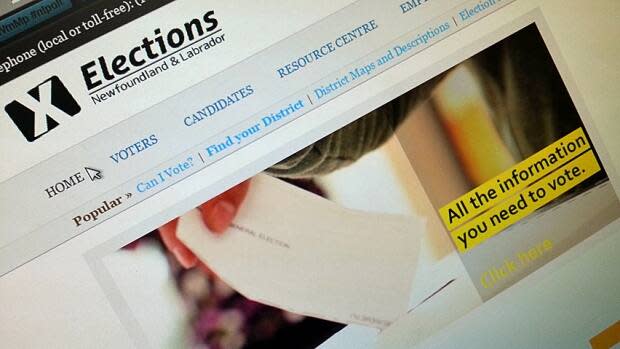Marathon, problem-plagued N.L. election was costliest on record

The 2021 Newfoundland and Labrador general election wasn't just the longest in the province's history — it was also the costliest.
Numbers obtained by CBC News peg the current bill for the 2021 election at $7.61 million. That's about 60 per cent greater than the $4.86 million Elections NL spent on the 2019 election and about 30 per cent more than the $5.87 million the agency spent on the 2015 race.
Postage and salaries are mostly to blame, said Travis Wooley, the province's assistant chief electoral officer, in an email Thursday.
Wooley added the final bill is still being tallied, as "some subsidies to candidates are payable" and "we still have one staff member at HQ working on the election finance filings."
In 2019, when just 9,300 voters cast special ballots, sending voting kits by mail cost Elections NL around $341,000. The agency was also able to save money by using surplus pre-paid envelopes from previous elections.
Two years later, when the 2021 campaign was thrown into turmoil by a sudden COVID-19 outbreak that forced Elections NL to scrap all in-person voting hours before polls opened, more than 100,000 people cast mail-in ballots. The bill jumped nearly 400 per cent, to $1.69 million.
COVID-19 and staffing
For the 2021 vote, Elections NL paid $3.62 million in salaries, a 37 per cent increase over the 2.69 million it spent on payroll in 2019. However, Wooley said that bump was mostly expected and built into his agency's budget from the beginning.
Before the outbreak, Elections NL had hired more attendants and cleaners at its polling stations, Wooley said. The agency had also rented space for a new 15-person team to register voters for special voting kits, a move which increased its staff at headquarters by a third.
"From our COVID planning we anticipated significantly more special ballot applications so we hired additional staff (approx. 15) solely for that operation," Wooley wrote.
When in-person voting was cancelled on Feb. 12, Elections NL established several processing centres in the St. John's area, as calls and e-mails flooded in from people looking to vote by mail. Wooley said workers were reassigned to answer phones, prepare voting kits and, eventually, count about 175,000 ballots.
"For costs post Feb. 12, the majority of our staff returned to HQ to process all the mail out ballots, and administer the count of ballots," Wooley said. "As part of our election planning we had budgeted for many of our staff and some staff in district [offices] to perform payroll and administrative functions after the election, so even though there were staff working after Feb. 13, the cost of those additional staff was largely budgeted for."
Wooley said another factor affecting payroll costs was the 75-cent minimum wage increase that came into effect between the 2019 and 2021 elections.
"We calculated that every $0.25 increase in minimum wage increases our wage costs by roughly $30,000-$35,000 depending on the number of election workers hired," he said.
Wooley added that given the government's minority situation heading into the 2021 election, "we were anticipating that this election was going to cost more, regardless of COVID."
"Without a fixed date there are many things we can't plan in advance to get better rates (logistics and transportation of election materials, aircraft rentals, building rentals, etc.) and there is certainly a cost to expediting the procurement or production of materials needed to run an election," he said.
Premier Andrew Furey triggered the contentious election in January despite a push from both the Progressive Conservatives and NDP to wait until later in the pandemic before calling voters to the polls.
Furey called a 28-day election, the shortest allowable writ period, but when Elections NL cancelled in-person voting it pivoted to a province-wide mail-in vote, extending the voting period substantially.
The campaign ended up lasting 10 weeks.

